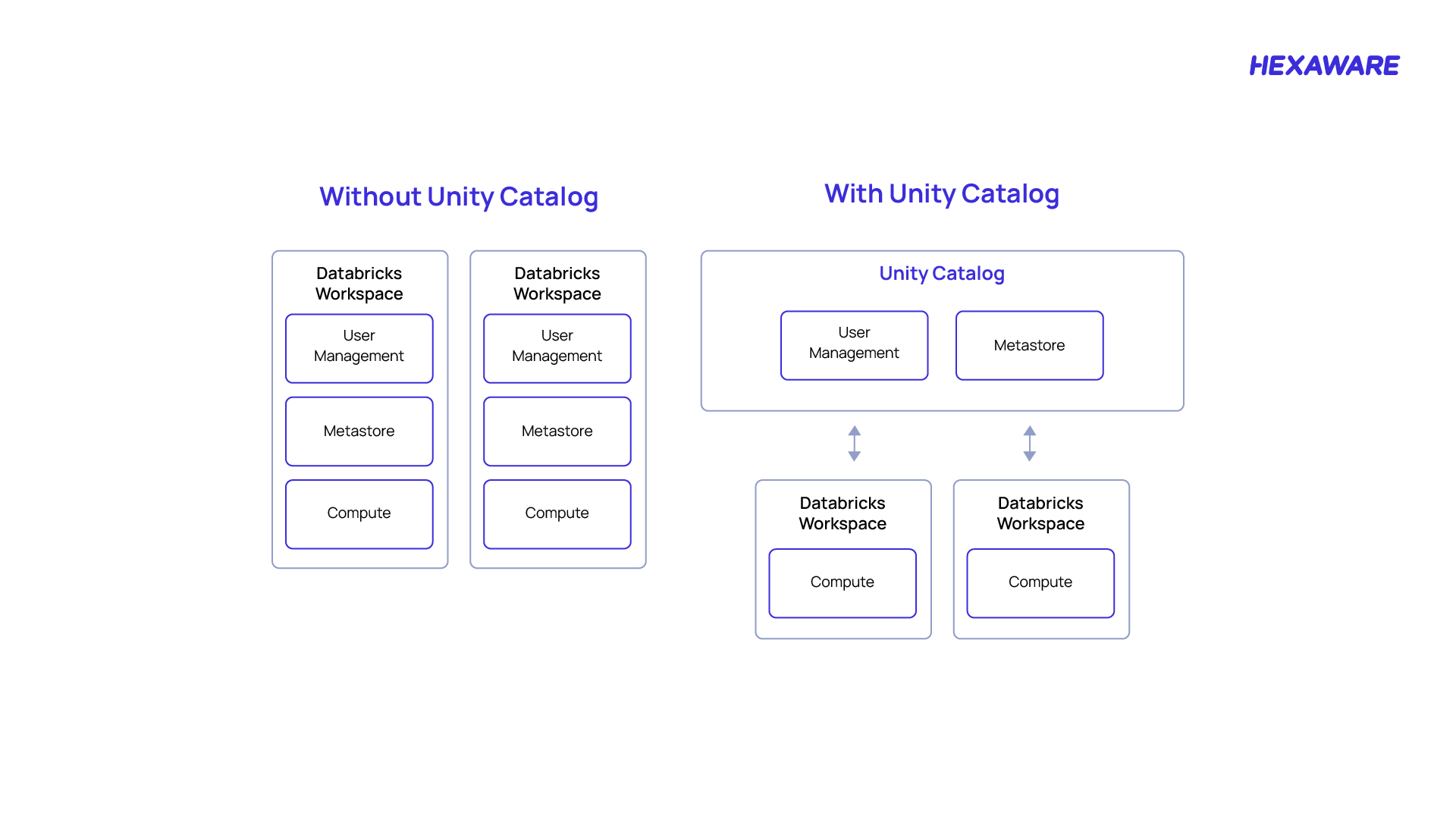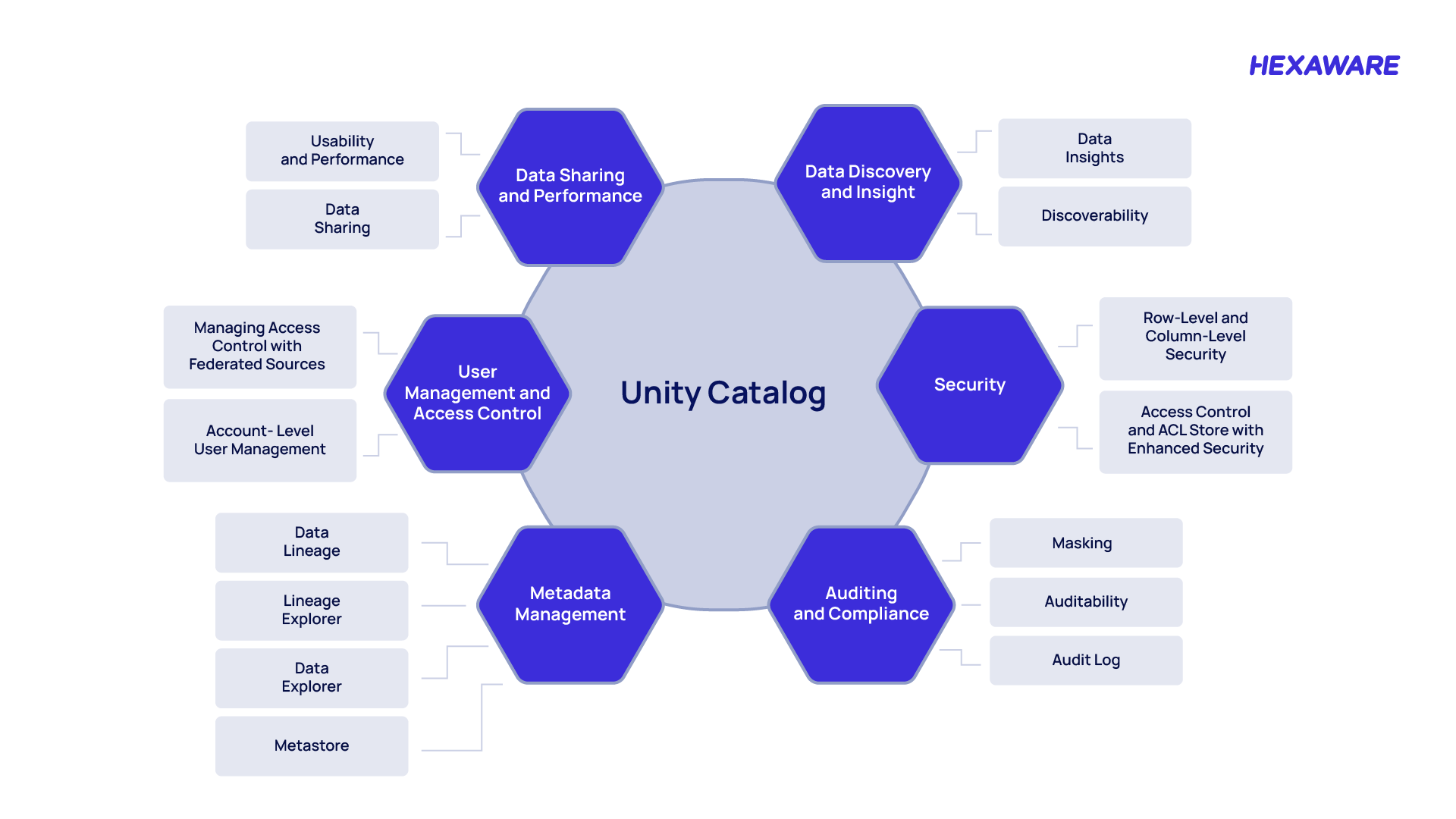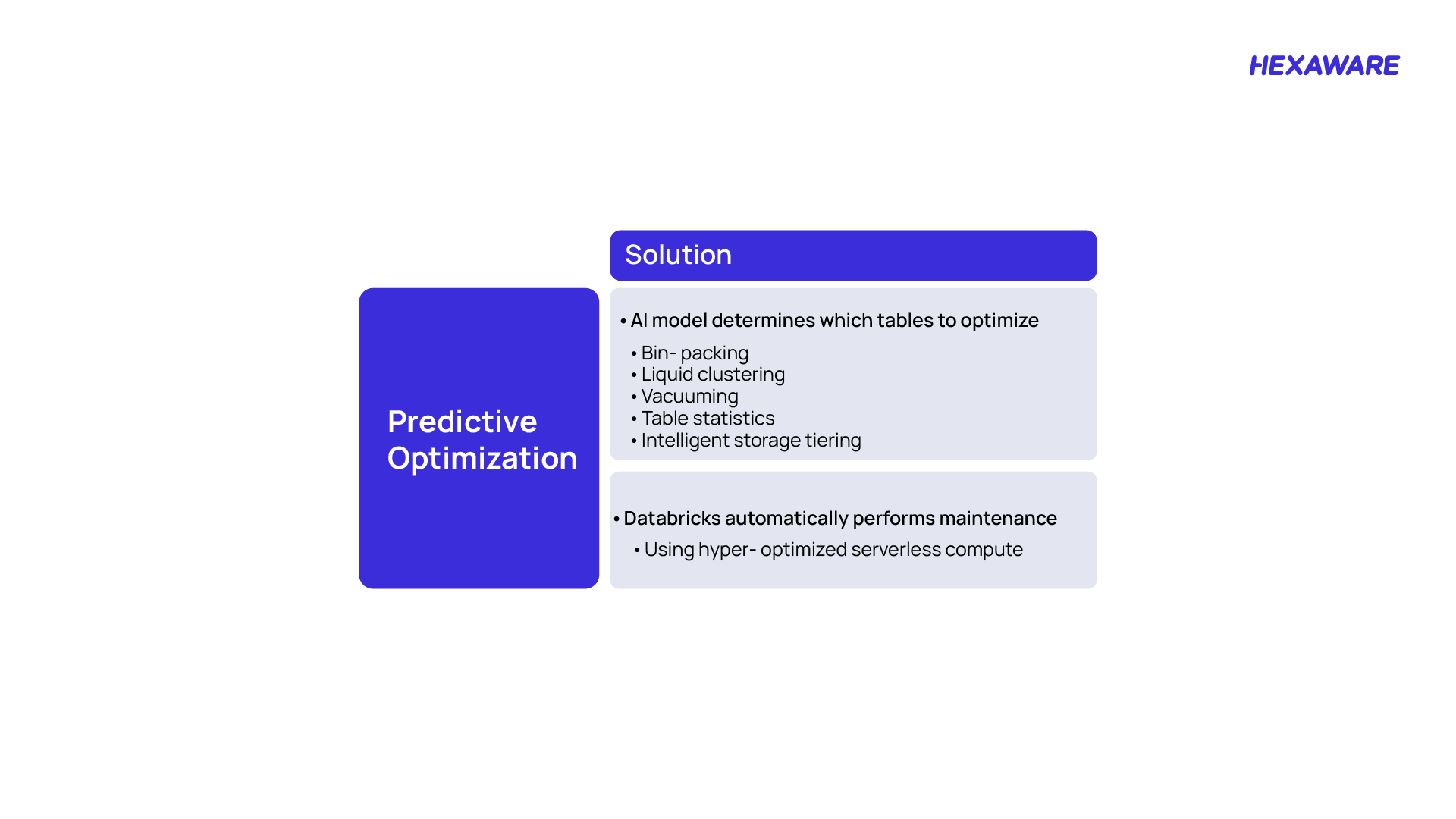Data governance is crucial for enterprises, laying the foundation for AI, compliance, and more. Majorly for organically grown data environments, that are tangled like spaghetti, when you want to implement AI at scale you need a new outlook that prioritizes governance. Not having it could domino, setting your business up for a big fall.
Databricks’ powerful platform makes working with data and AI easy and effective because it brings governance to the center stage. The platform is tailored for data/AI engineers, data scientists, and those interested in exploring numerous new analytical use cases, and it has become a widely recognized governance solution.
How Does Governance Sync with Your Data Platform?
Good data governance helps ensure that your data is secure, easy to find, reliable, and ready to perform at its best—kind of like having a GPS that always knows the fastest route. This means your AI analytics workflows run on premium fuel, delivering spot-on insights and driving innovation faster.
Data governance is defined as ‘A discipline that provides the necessary policies, processes, standards, roles, and responsibilities needed to ensure that data is managed as an asset. Governance thrives on the synergy between people, platforms, and data. Picture this:
- People: The hands guiding all your decisions.
- Platforms: The digital tools to drive analytics.
- Data: The information that flows throughout.
When these elements align with governance, you win. Better data architecture, improved platform usability, and frameworks that guide how platforms should be used, improve data as well as its business outcomes, driving everything forward. Good governance ensures that the following four key criteria will apply to your data:
- Secure and auditable
- Discoverable
- Usable and performant
- Accurate and high-quality
Databricks for Data Governance with Unity Catalog
A strong data governance framework supports and simplifies how you use data to drive your business forward. But ultimately, it’s your platform that lets it work its magic.
As a cloud-based data intelligence platform that unifies data engineering, data science, and data analytics, Databricks Unity Catalog centralizes metadata management and adds several features to your arsenal for strong governance protocols.
It provides a single source of truth for data assets, permissions, and lineage, enabling secure, discoverable, and governed data management across your enterprise.
Unity Catalog creates a single metadata repository across multiple Databricks workspaces while maintaining separate workspaces for different projects, teams, or environments. This provides users with a centralized metadata layer and lets you follow audit logs and data lineage.
Additionally, the platform’s user management features track authorization checks for data access across all groups, users, and service principles. Whenever a user tries to access any data, Unity Catalog first checks the authorization with user management.

Unity Catalog’s Key Features for Data Governance
In this blog, we will take you through how Unity Catalog aligns with key data governance features to drive business outcomes, ensuring data is secure, auditable, discoverable, usable, performant, accurate, and high-quality.
Databricks tables are the main units for storing and managing data. These tables are designed to be fast and scalable, with Unity Catalog bringing it all together!

Security
Imagine an ideal data environment, where your sensitive information is fully protected and only the right people have access to the right data at the right time. Unity Catalog’s features are designed to increase security and auditability with centralized access control for tabular data, data on volumes, and models.
You can also include column and row-level security and data masking. This means you can fine-tune who sees what, down to the individual cell within a table. Sensitive information is only accessible to authorized users, significantly reducing the risk of data breaches.
Auditability
The Unity Catalog provides comprehensive auditability, enabling you to track and monitor all activities related to data access, modifications, and governance.
Imagine having a tamper-proof audit trail that logs all user actions—whether it’s schema changes, permission updates, or data accesses. This level of detail ensures complete transparency and accountability, making it easier to meet compliance requirements.
Its auditability features also support advanced analytics and reporting. This empowers data administrators to identify trends, detect anomalies, and help improve governance policies.
Taking It a Step Forward: Managing Access Control For Federated Data Sources
Federated data sources refer to multiple, often distributed, data repositories that are treated as a single, unified data source. It’s one of the best ways to integrate and analyze data from multiple, distributed repositories without the need for data consolidation.
Its advanced features help you control who can access your data across these different databases. It uses various tools like SQL Warehouses, Serverless SQL Warehouses, and Databricks Runtime Clusters.
Discoverability
Unity Catalog’s search functionality changes the way your teams interact with your data. It allows users to search across metadata fields such as table names, column names, and comments to locate the data essential for an analysis.
Quickly find the exact data you need, whether it’s tables, columns, or even comments. This search functionality adds efficiency and accessibility within the platform, making your workflow smoother and more productive.
But it doesn’t stop there. Users can search for any entity—data, notebooks, models, queries, and more. And, just like in a Google search, discovery results are ranked by popularity, ensuring that the most relevant information is always at your fingertips.
Taking It a Step Forward: Data Insights
The insights capabilities within the platform are also critical. This feature allows you to gain a deeper understanding of how your data is being used across your enterprise.
You can see which notebooks, queries, and dashboards are most frequently accessing tables. Understanding user behavior and performance metrics lets you optimize tables for better performance and increase the impact.
With data insights, you build better data strategies, making sure your resources are being used effectively.
Usability and Performance
Another powerful feature of Unity Catalog is its ability to leverage AI to optimize data tables at the backend. This improves performance without compromising speed, ensuring that your data operations are always efficient. Called predictive optimization, this feature is pivotal.
Key advantages include:
- Optimized tables: AI models create tables and improve the efficiency of queries.
- Serverless computing: Serverless architecture manages resources automatically.
- Smoother user experience: Optimization lessens latency and backend problems.

Taking It a Step Forward: Delta Sharing
Delta Sharing is a secure data-sharing platform that lets you share data and AI assets both internally and externally. This feature lets you collaborate and exchange assets simplifying how you share and monetize data with vendors, partners, and more.
Data Lineage
Data Lineage is the tracking and visualization of data flow, from its origin to its final use case, showing how data is transformed, processed, and used throughout its lifecycle. It secures all that data governance stands for. Databricks offers a dedicated tab to understand data lineage within your workflows. You get valuable insights into the flow of data, invaluable for conducting impact and root cause analysis, helping identify reasons behind issues like delayed dashboard refresh rates and attributing responsibilities to relevant teams.
Taking It a Step Forward: Data Lineage with System Tables
With Databricks, we can improve governance by using system access tables to customize queries to meet our needs. This helps ensure that data access is controlled and monitored effectively.
Conclusion
Databricks Unity Catalog offers a comprehensive solution for data governance, addressing critical needs such as security, discoverability, usability, and accuracy. Moreover, with its Unity Catalog, businesses can ensure their data assets are governed effectively, driving better insights, compliance, and overall data quality.
An advanced governance solution could be your catalyst to unleash unified AI at scale! If you think Databricks could be the right solution for your data governance needs, Hexaware can help! Learn more about our Databricks solutions here.



















